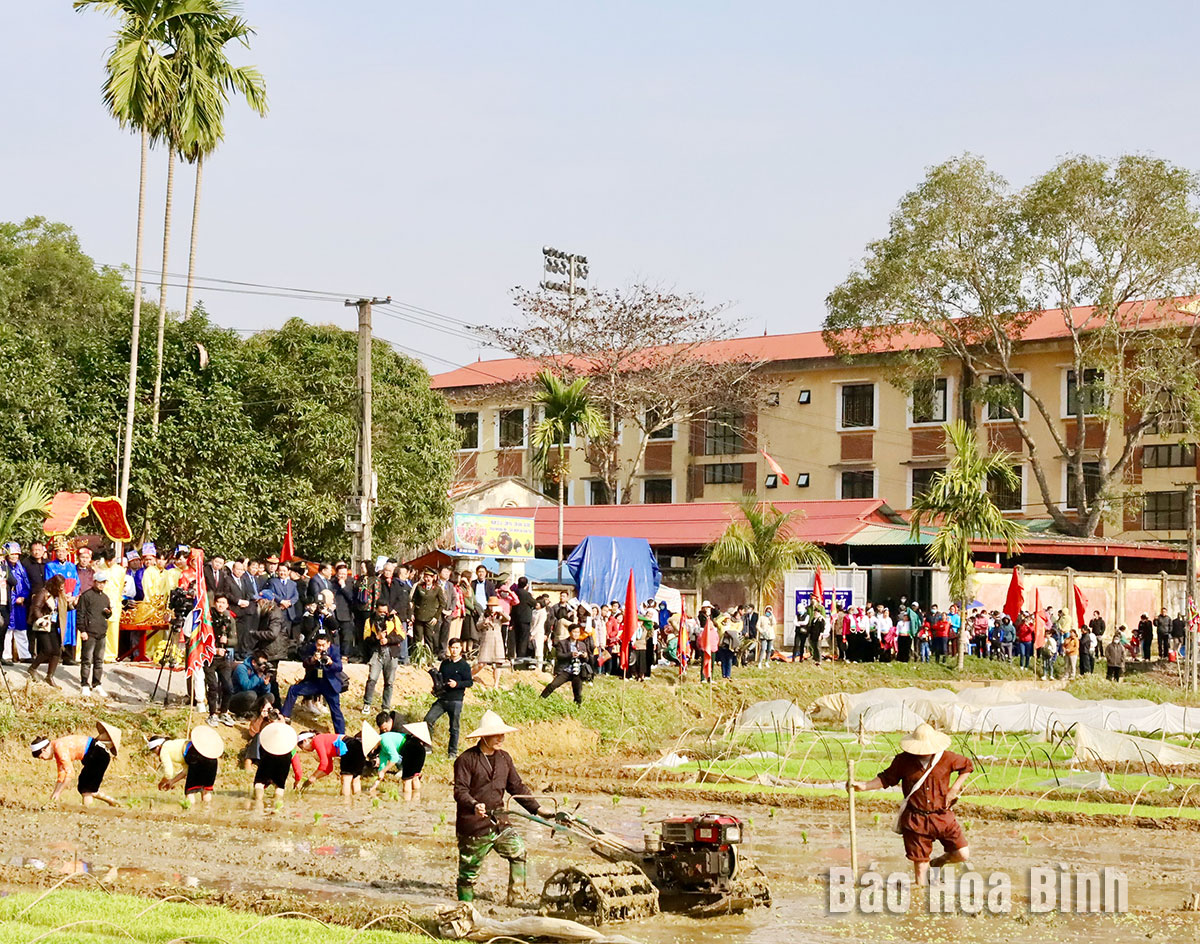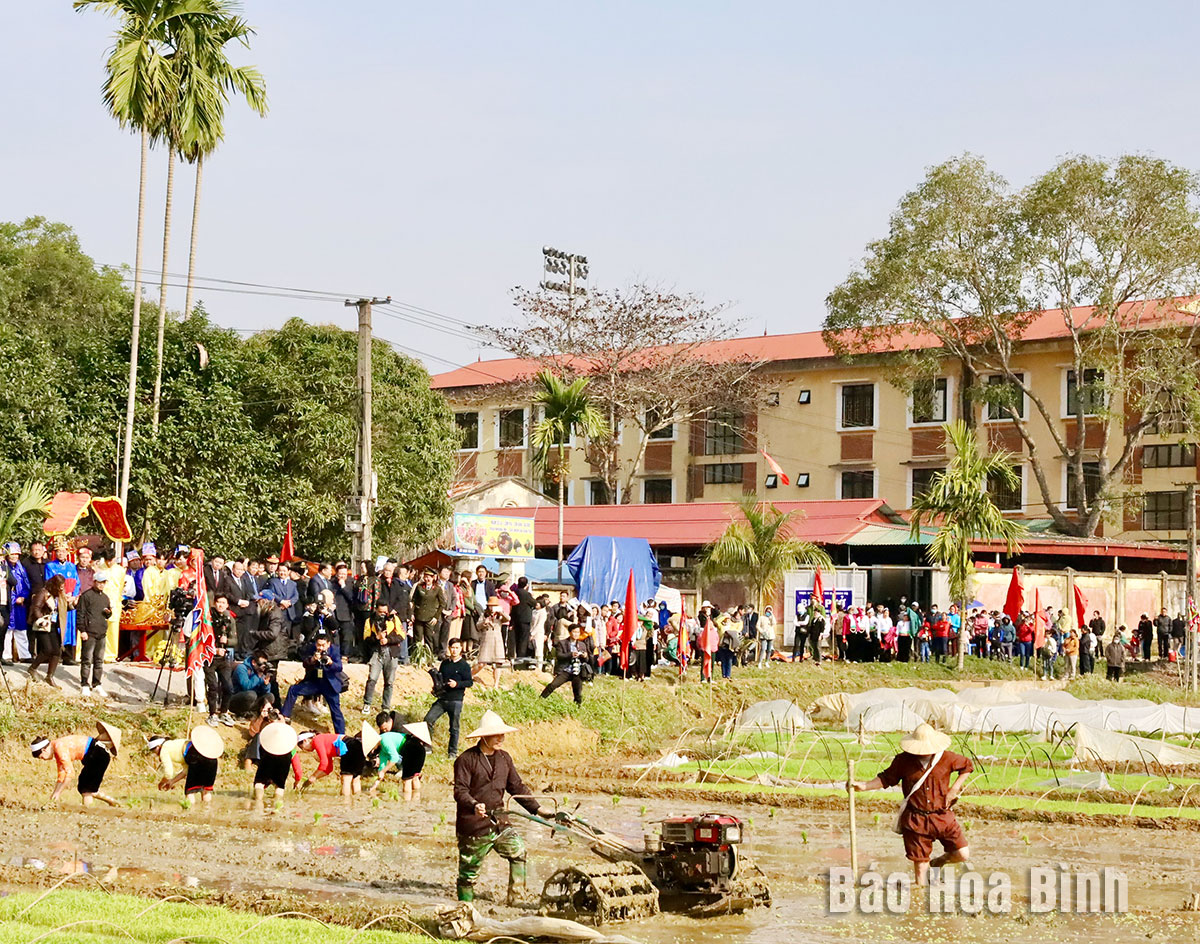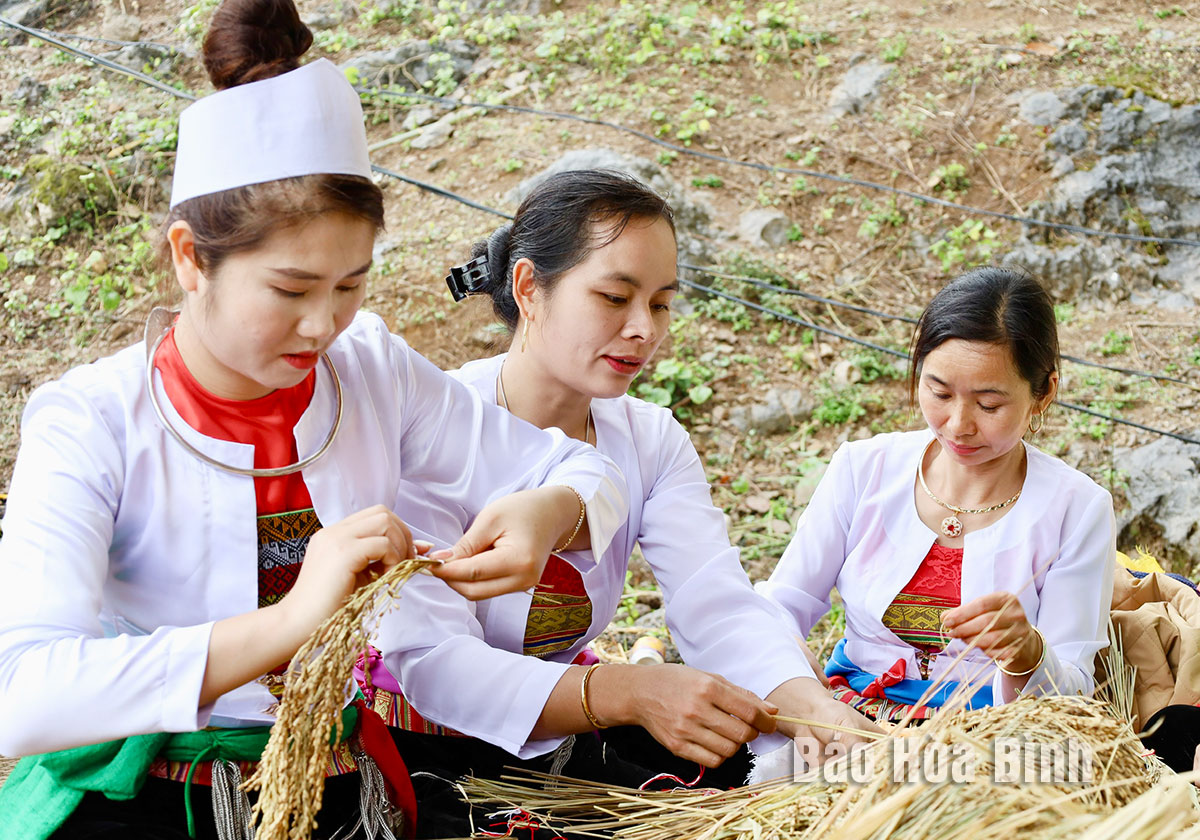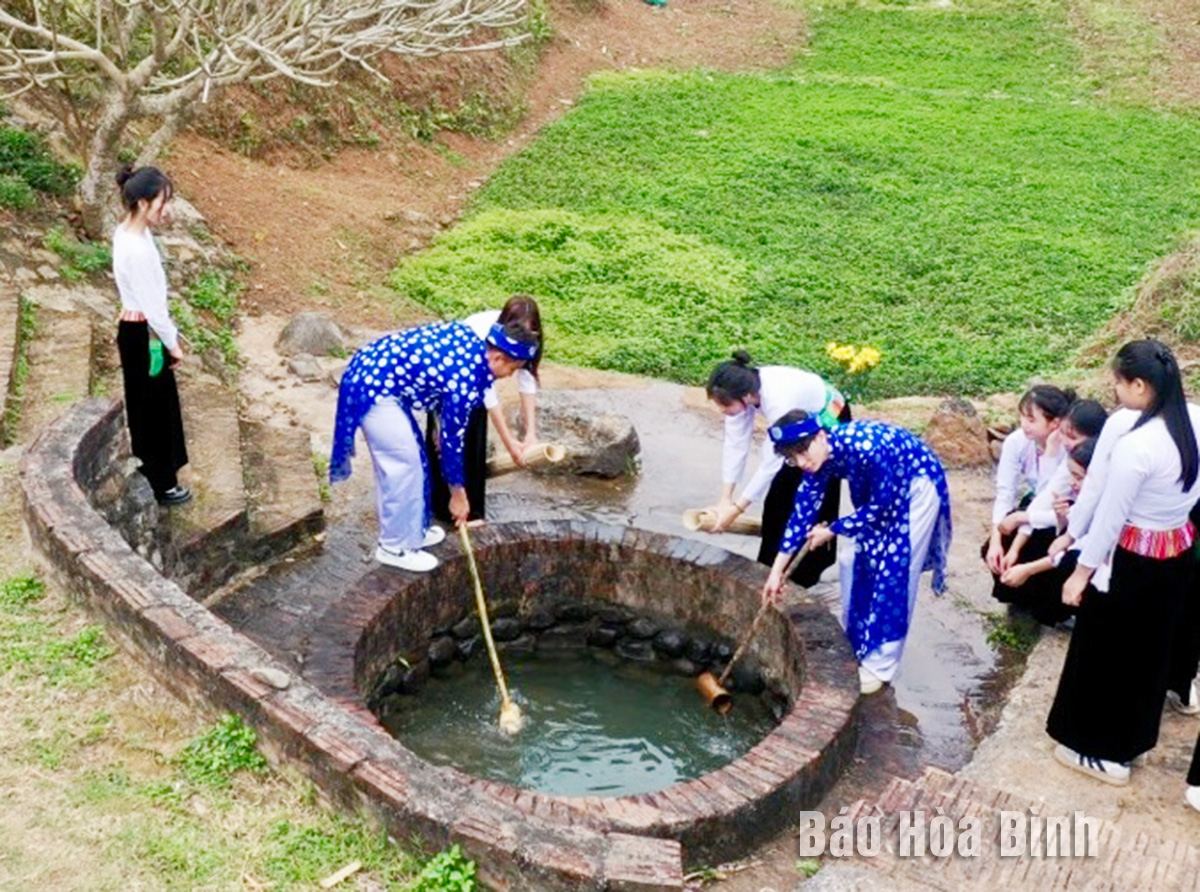
When spring comes, festivals are held in villages in all four Muong areas, namely Bi, Vang, Thanh, and Dong in Hoa Binh provinces. Along with the preservation and restoration of festivals, many unique rituals in the festivals are recreated, which attract a lot of local residents and tourists.
The ritual "Duong cay dau xuan”
(Spring plough line) starts the new year with a good harvest in Muong Bi field
in Phong Phu commune, Tan Lac district
Spring plough line
Spring plough line ritual is part of "khai ha” (go to the field) festival
of the Muong ethnic group in Muong Bi area in Tan Lac district. The ritual is
associated with the worshipping of the Gods of Sky and Land while reflects the
great importance the people attach to agriculture.
People in Muong Bi area believe that without this ritual,
farmers must not go to the fields. The official season begins when the ritual
is over.
Procession of rice
plants
Many festivals are being held in first lunar month in Muong Vang
area in Lac Son district. A notable one is the Khenh communal festival in Van
Son commune held from 12th and 13th of the lunar January with the ritual of
procession of rice plants.
This ritual takes place early in the morning. The procession
group led by a shaman carries a palanquin to the temple to carry out the ritual
procedures, and then bring rice plants to the communal house for the festival.
The rice plants are then bundled, tied with coloured threads. Bundle of rice
plants will be given to people, symbolising good luck and bumper crops.
Breaking rice containers
On the 7th and 8th of the first month of the lunar year, Vinh Dong commune in
Kim Boi district opens the Muong Dong spring festival. One of the interesting
rituals at the festival is to break rice containers. Chieng Dong villagers hold
a ceremony at Dong Bai stop – a public resting place, about 300m south of
Chieng Dong communal house. In the early morning of the 7th, the temper keeper
prepares a tray of offerings to the Gods of Land and asks for permission for
the ceremony to be carried out.
The temple keeper will lead a group of young people to visit
families in commune and use bamboo sticks to beat rice containers which are
made of nua (schizostachyum). Sometimes, because they are too enthusiastic and
engrossed in beating, the rice containers may be punctured or broken, but home
owner is not allowed to complain. The main implication is to let the children
beat for a while, then the owner of the house will offer the children some
fruits and cakes, and ask them not to beat anymore.
After visiting seven to ten families, they will return Dong Bai
stop. On the way back, the children throw their sticks into rivers and streams.
The ritual aims to drive away evil spirits from the village, so that everyone
can be healthy, and all things can develop well.
Bunches of rice symbolising luck and
fortune are given to people and visitors to the Khenh communal festival in Van
Son commune.
Water procession
ceremony during the Muong Thanh festival.
Water procession
Near the Ca temple in Dung Phong commune of Cao Phong district, there is an
ancient well that is full of water all year round. At the Muong Thanh crop
season-staring festival held on 6th of the first lunar month, an important
ritual is the procession of water from the ancient well to Ca temple. A shaman
will offer the well water to the altar at the temple and pray for a year of
peace and health for everyone.
A similar ritual was also recreated at the Truong Kha temple festival in Vu Ban
town in the Muong Vang area. The festival taking place on 15th day of Lunar
January and is held every three years. The water taken from Vo temple area will
be given to festival goers. It is believed that the water can help cure
illnesses.
According to the Department of Culture, Sports and Tourism, the
rituals practiced and re-enacted at the festivals of the four Muong areas are
profound spiritual and religious activities. The rituals reflect Muong people's
wishes about good health, favourable weather conditions, bumper crops and a
prosperous new year.
Since the festivals were restored with a full range of rituals and festival
activities, people have better awareness in preserving and promoting cultural
identity and traditional values. The traditional cultural values are widely
introduced and promoted, contributing to increasing Hoa Binh’s tourist
attraction.
With an increasingly vibrant and widespread emulation movement aimed at building cultured residential areas and cultured families, Yen Thuy District has been making steady progress toward improving both the material and spiritual well-being of its people, while fostering a civilized, prosperous, beautiful, and progressive community.
Once lacking recreational spaces and community facilities, Residential Group 2 in Quynh Lam Ward (Hoa Binh City) has recently received attention for the construction of a new, spacious, and fully equipped cultural house. The project followed the model of state support combined with public contributions in both labor and funding.
The "All people unite to build cultural life" movement, which has been effectively integrated with Kim Boi district’s socio-economic development goals, is fostering a lively spirit of emulation across local residential areas, hamlets, villages, public agencies, and enterprises. In addition, through the initiative, traditional cultural values are being preserved and promoted, while community solidarity and mutual support in poverty reduction and economic development are being strengthened.
A working delegation of the Hoa Binh provincial People’s Committee led by its Permanent Vice Chairman Nguyen Van Toan on June 11 inspected the progress of a project to build the Mo Muong Cultural Heritage Conservation Space linked to tourism services in Hop Phong commune, Cao Phong district.
Born and growing in the heroic land of Muong Dong, Dinh Thi Kieu Dung, a resident in Bo town of Kim Boi district, in her childhood was nurtured by the sweet lullabies of her grandmother and mother. These melodies deeply imprinted on her soul, becoming an inseparable part of her love for her ethnic group's culture. For over 20 years, this love for her hometown has driven Dung to research, collect, and pass down the cultural values of the Muong people to future generations.
In the final days of May, the Ethnic Art Troupe of Hoa Binh Province organized performances to serve the people in remote, mountainous, and particularly disadvantaged areas within the province. These were not just ordinary artistic shows, but they were the meaningful journeys aimed at spreading cultural values, enhancing the spiritual life of the people and contributing to the preservation of ethnic minority cultural identities.





